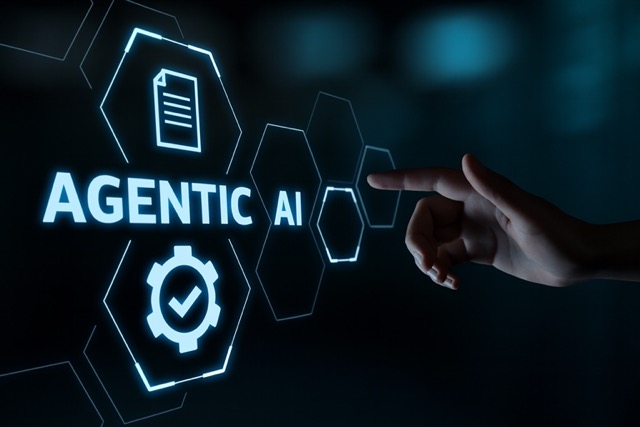
Agentic AI: The Rise of Small AI Agents in Business Automation
The term AI often gets used broadly to describe many types of AI. One type of AI that has a very unique and interesting capability is agentic AI.
What is agentic AI?
Agentic AI refers to task-specific, autonomous agents designed to complete very focused, repeatable actions using artificial intelligence. Unlike general-purpose (or generative) AI tools like ChatGPT that handle open-ended conversations, agentic AI excels at doing one thing—and doing it extremely well.
These AI agents are each designed and trained to perform a single job reliably: sending emails, analyzing data, scheduling appointments, or monitoring a system. These agents don’t “hallucinate” or go off-track like a massive language model might. Instead, they take specific data, run a specific task, and deliver consistent results.
From Broad AI to Focused Execution
The big battlefront is people realizing they shouldn’t just use AI to do everything. They should use small AI agents to do specific things really well.
And that’s exactly what we’re seeing across industries:
- In IT, agentic AI is being used to automate ticket triage, patch management, and internal reporting.
- In healthcare, it’s streamlining patient check-ins and collecting vitals—dramatically reducing the need for additional staffing.
- In software development, it’s replacing basic code generation roles by automating templated tasks.
Why Agentic AI Works Better Than You Think
A common frustration with AI is inconsistency. Ask a general AI to complete a business process, and it might fumble the details. But when you control the data input and build a specific agent for a specific job, the results become reliable, scalable, and repeatable.
There’s a medical practice that is building an AI-assisted intake system where one medical assistant can now do the work of five, thanks to AI agents handling vitals collection, documentation, and pre-checks.
They didn’t need some mega-LLM. They needed agentic AI with narrow focus and deep integration.
Entrepreneurial Speed at AI Scale
The key to business success with AI is to embrace different ai tools for different purposes. Some tools are stronger than others for specific purposes. For example, to test how helpful AI tools can be, I built a complete brand concept, photos, video, and website in 20 minutes using AI tools like GoDaddy’s Arrow, ChatGPT, and Vimeo’s AI video builder. It wasn’t about deep tech knowledge. It was about rapid idea execution using smart, automated tools.
In the past, launching a business online would’ve taken weeks and thousands of dollars. Now? It’s minutes and free tools.
Curious about the site I built? Check it out here: https://bickmoretoneco.com/
The Future: Vision + AI Agents
While it may seem like AI can replace a lot of people, the key insight is that you still need human vision. AI can do a lot of the heavy lifting, but it still relies completely on people giving it direction. It’s not about losing your job to AI—it’s about augmenting your role to focus on strategy, leadership, and creative thinking.
Industries like marketing are already adapting. Some firms now offer two price points: one for AI-generated content, another for traditional creative work. It’s the new normal.
When it Comes to AI, Don’t Get Left Behind
Agentic AI is not “coming soon”—it’s here, right now. Businesses that fail to build and deploy AI agents for routine processes risk becoming irrelevant.
The tools are cheap. The learning curve is short. The opportunity is enormous.
So, what’s stopping you?
Does Your Business Have an AI Strategy?
At Snap Tech IT, we’re focused on helping businesses solve their technology questions.
If you haven’t mapped out an AI strategy for your business, perhaps we could help. Click the button below to schedule a call.

Karl Bickmore
CEO, Snap Tech IT